GENERAL DATA
Plant parts: Leaf, Flower
Cultivation mode: Wild collection/ Cultivated
In manufacturing: Pharmaceutical, oil, perfumery, extract, cosmetic, beverages, alcoholic drink (Wine), insecticide.
In food: Tea.
🍋 Industries That Use Lemon Balm Leaves (Melissa officinalis L.)
Lemon balm leaves, known for their fresh lemony scent and gentle therapeutic properties, are widely used across several industries. From calming herbal teas and stress-relief supplements to soothing skincare and aromatherapy blends, Melissa officinalis plays a central role in products designed for relaxation, digestion, antiviral care, and emotional balance. Its versatility and safety make it a staple in the food, wellness, and personal care sectors worldwide.
🌿 What Are Lemon Balm Leaves?
Lemon Balm is a lemon-scented herb from the mint family (Lamiaceae), native to the Mediterranean and West Asia. The leaves contain essential oils (citral, citronellal, geranial), rosmarinic acid, and flavonoids, giving them mild calming, antiviral, and digestive properties.
Lemon balm is widely used in phytotherapy, natural cosmetics, aromatherapy, and functional foods.
1. Pharmaceutical & Herbal Medicine Industry
Lemon balm is known for its nervine, antispasmodic, and antiviral effects.
Medicinal Applications:
-
Mild sedative: relieves anxiety, insomnia, and restlessness
-
Digestive aid: eases gas, bloating, and nervous indigestion
-
Antiviral activity: topical use for herpes simplex (cold sores)
-
Menstrual comfort: reduces PMS-related tension and pain
-
Cognitive support: studied for focus and mild memory support
✅ Used in capsules, tinctures, syrups, lozenges, and creams
✅ Commonly combined with Valerian, Chamomile, Passionflower
2. Nutraceuticals & Functional Food Industry
Lemon balm is a staple in relaxation-promoting formulas and wellness supplements.
Common Products:
-
Sleep and anti-stress teas or powders
-
Herbal shots and calm-focus supplements
-
Mood-enhancing tonics and adaptogenic blends
-
Liver support formulas (due to antioxidant profile)
✅ GRAS status in the U.S. and widely accepted in EU monographs
3. Tea & Beverage Industry
Lemon balm is a premium herb in herbal tea blends and functional drinks.
Applications:
-
Caffeine-free herbal teas: calming, sleep-enhancing blends
-
Flavored water infusions, relaxation beverages
-
Digestive or detox herbal blends with mint, ginger, etc.
-
Cold brew or sparkling botanical beverages
✅ Valued for its pleasant citrusy aroma and gentle action
4. Cosmetic & Personal Care Industry
Lemon balm extract and essential oil are used in natural skincare for their calming, antioxidant, and antiviral benefits.
Common Uses:
-
Anti-aging creams, serums, and facial mists
-
Cold sore balms and lip treatments
-
Herbal toners and cleansing milks
-
Scalp calming and anti-dandruff products
✅ Key ingredient in botanical lines for sensitive skin
5. Aromatherapy & Wellness Industry
Lemon balm essential oil (though expensive and often adulterated) is prized for its uplifting, anti-anxiety effects.
Uses:
-
Diffuser blends for nervous tension, grief, restlessness
-
Massage oils for mood support and digestion
-
Sleep sprays and aromatherapeutic bath products
✅ Pure Melissa officinalis essential oil is rare and costly
6. Food & Flavor Industry
Lemon balm is sometimes used in herbal desserts, liqueurs, and botanical confections.
Examples:
-
Herbal lemonades, cocktails, and flavored syrups
-
Natural flavoring in sorbets, jellies, and fruit infusions
-
Included in some digestif spirits (historically in Chartreuse)
✅ Mild and citrusy—pairs well with Lemon Verbena, Mint, or Basil
✅ Summary of Key Applications
| Industry | Common Uses |
|---|---|
| Pharmaceutical/Herbal | Anti-anxiety, insomnia, digestion, PMS relief |
| Nutraceuticals | Sleep aids, calm-focus supplements, antioxidant formulas |
| Tea & Beverage | Herbal tea blends, infused waters, relaxation drinks |
| Cosmetic/Skincare | Anti-redness creams, cold sore balms, facial tonics |
| Aromatherapy | Essential oil blends for mood, stress, sleep |
| Food & Flavoring | Lemon-flavored syrups, herbal desserts, cocktails |
🌟 Key Features
-
Contains citral, citronellal, and rosmarinic acid
-
Acts as a mild sedative, carminative, and antiviral
-
Well-studied for use in nervous tension, insomnia, herpes simplex, and digestion
-
Used in both Western herbal medicine and Persian folk remedies
-
Available in cut leaves, powder, extracts, or essential oil
🌸 Industries That Use Lemon Balm Flowers (Melissa officinalis L.)
Lemon balm flowers, though less commonly highlighted than the leaves, offer gentle aromatic and therapeutic value. These small, pale-white to yellowish flowers bloom in late summer and contain many of the same essential oil components as the leaves, albeit in lower concentrations. They are primarily used in delicate herbal blends, skincare infusions, and natural wellness products where floral subtlety and calming properties are desired.
1. Pharmaceutical & Herbal Medicine Industry
Lemon balm flowers are used in mild nervine and digestive formulations, often in combination with the leaves.
Applications:
-
Calming herbal infusions for stress and anxiety
-
Supportive blends for digestive upset and gastric spasms
-
Gentle sedatives in pediatric or geriatric herbal remedies
-
Sometimes used in menstrual comfort and mood-balancing teas
✅ Often blended with Chamomile, Lavender, and Valerian flowers
✅ Commonly prepared as tea infusions, tinctures, or flower powders
2. Tea & Beverage Industry
Although the leaves dominate commercial formulations, the flowers are occasionally included in premium herbal tea blends for aroma and softness.
Applications:
-
Caffeine-free sleep and anti-stress teas
-
Floral blends for emotional balance and digestive ease
-
Visual enhancement in loose-leaf herbal mixes
-
Used in wellness elixirs and sparkling botanical beverages
✅ Pairs well with Lemon Verbena, Rose petals, and Linden flowers
3. Cosmetic & Personal Care Industry
Lemon balm flowers are a gentle addition to natural skincare and aromatherapeutic preparations.
Uses:
-
Flower infusions in toners, serums, and bath soaks
-
Included in botanical facial steams for calming the skin
-
Used in eye compress blends for reducing puffiness and redness
-
Infused into herbal waters for sensitive or inflamed skin
✅ Valued for their mild anti-inflammatory and antioxidant properties
4. Aromatherapy & Botanical Fragrance Industry
While the essential oil is rarely distilled from flowers alone, dried blossoms are used in aromatic crafts and relaxation formulas.
Applications:
-
Sachets, potpourri, and pillow sprays for relaxation
-
Floral component in botanical incense and herbal blends
-
Gentle contributor to sleep blends and mindfulness kits
✅ Sometimes infused in carrier oils for calming massage or body oils
5. Ethnobotanical & Artisanal Use
In small-batch and traditional settings, lemon balm flowers are hand-harvested for use in seasonal apothecary products.
Common Formats:
-
Infused vinegars and hydrosols
-
Decorative elements in herbal soaps and salves
-
Seasonal flower tinctures and DIY teas
✅ Popular in small herbal brands and botanical therapy circles
✅ Summary of Key Applications
| Industry | Common Uses |
|---|---|
| Pharmaceutical/Herbal | Mild sedative teas, gastric support blends, women’s wellness |
| Tea & Beverage | Visual/flavor enhancer in calming teas and tonics |
| Cosmetic/Skincare | Facial toners, bath soaks, flower steams |
| Aromatherapy | Relaxation sachets, herbal pillows, botanical incense |
| Artisanal Herbalism | Infused oils, hydrosols, hand-blended teas and salves |
🌟 Key Features
-
Contains low concentrations of citral and rosmarinic acid
-
Offers calming, soothing, and lightly aromatic qualities
-
Best used in combination with lemon balm leaves
-
Aesthetic and sensory value in premium botanical blends
-
Often included for holistic formulation balance and visual appeal
🌱 Industries That Use Lemon Balm Seeds (Melissa officinalis L.)
Lemon balm seeds are tiny, brown to black, ovoid seeds produced by the flowering herb Melissa officinalis L. While not used in food, medicine, or cosmetics, they hold agricultural, ecological, and commercial propagation value in the herbal and horticultural industries. Their role is essential in the global cultivation of lemon balm for use in teas, supplements, and essential oils.
1. Agricultural & Horticultural Industry
Lemon balm seeds are a key product in the commercial herb farming sector.
Applications:
-
Cultivation of commercial lemon balm crops for tea, pharma, and essential oils
-
Grown in open fields, greenhouses, and regenerative systems
-
Used in companion planting for their ability to attract pollinators and beneficial insects
✅ Suitable for organic and permaculture systems
✅ Seeds sold for both commercial farms and home gardeners
2. Seed Trade & Botanical Supply Industry
Lemon balm seeds are traded globally as part of the herbal seed supply chain.
Common Formats:
-
Bulk seed packets for large-scale growers
-
Retail seed packets for garden centers and home herbalists
-
GMO-free, heirloom, and organic-certified seed varieties in demand
✅ Sold by agricultural suppliers, seed banks, and herbal cooperatives
3. Research & Breeding Programs
Lemon balm seeds are used in phytochemical research, breeding programs, and agronomic trials.
Use Cases:
-
Development of high-oil yield cultivars (for essential oil production)
-
Study of germination rates, soil preferences, and climate resilience
-
Used in botanical gardens, universities, and breeding institutes
✅ Often involved in European and Middle Eastern herb breeding projects
4. Ecological Restoration & Pollinator Support
Although not a common restoration species, lemon balm is occasionally seeded in pollinator garden kits or biodiversity projects.
Roles:
-
Attracts bees, butterflies, and hoverflies
-
Grown in urban gardens, bee pastures, and community herbal plots
✅ Contributes to urban greening and herbal education spaces
✅ Summary of Key Applications
| Industry | Common Uses |
|---|---|
| Agriculture & Herb Farming | Cultivation of lemon balm for commercial use |
| Seed Trade | Organic and heirloom seed sales, seed libraries |
| Botanical Research | Germination trials, chemotype breeding, phytochemical studies |
| Pollinator & Urban Gardening | Bee-friendly plantings, companion planting, biodiversity kits |
🌟 Key Features
-
Not edible or medicinal directly
-
Essential for growing lemon balm crops at scale
-
Sourced from mature, fully flowered plants
-
Germinates best in warm, well-drained soil with partial sunlight
-
Demand is growing due to the expansion of herbal product industries
🌿 Comparison: Lemon Balm Seeds, Leaves, and Flowers
(Melissa officinalis L.)
| Aspect | Lemon Balm Seeds | Lemon Balm Leaves | Lemon Balm Flowers |
|---|---|---|---|
| Botanical Part | Dry fruit (seed) | Aerial leafy part | Flowering top |
| Primary Use | Cultivation & propagation | Herbal medicine, food, cosmetics | Teas, skincare, artisanal herbalism |
| Industries Involved | Agriculture, seed trade, research | Pharma, nutraceutical, tea, skincare, aromatherapy | Tea, skincare, wellness, fragrance |
| Phytochemical Content | Not used medicinally | High in citral, rosmarinic acid, flavonoids | Low-moderate in volatile oils and polyphenols |
| Aroma & Flavor | None | Lemony, fresh, mild | Delicate, floral-citrus, faintly sweet |
| Therapeutic Uses | None directly | Calming, digestive, antiviral, antioxidant | Nervine, mild sedative, skin-soothing |
| Culinary Use | None | Used fresh or dried in dishes and teas | Occasionally in high-end tea blends |
| Cosmetic Use | None | Toners, creams, facial mists, bath soaks | Facial steams, anti-puffiness soaks, cold sore blends |
| Essential Oil Use | None | Source of Melissa essential oil | Rarely used directly for EO |
| Form in Trade | Raw or treated seeds (bulk or retail) | Fresh, dried, powdered, extract | Dried whole flowers or petals |
| Shelf Life | Long (if stored cool/dry) | Short (fresh), 1–2 years (dried) | 1–2 years dried in airtight storage |
| Role in Product Formulation | Cultivation input | Active ingredient | Functional/aesthetic additive |
| Availability | Sold by seed companies, farms | Widely available in herb, food, pharma markets | Less common; small-batch artisan markets |
✅ Summary Comparison
| Category | Seeds | Leaves | Flowers |
|---|---|---|---|
| Primary Role | Propagation | Therapeutic & culinary | Supportive/secondary therapeutic |
| Potency | None | Strongest active component | Milder, aromatic |
| Market Presence | Niche (farming/research) | Mainstream | Limited/specialty |
| Key Applications | Growing new crops | Stress relief, digestion, skincare, teas | Calming teas, floral cosmetics, crafts |
🌟 Final Notes:
-
Seeds are critical to supply chain continuity (cultivation and breeding).
-
Leaves are the core functional part, rich in essential oils and widely used across industries.
-
Flowers add visual appeal, gentle aroma, and supportive herbal value in specialty blends.
Each part serves a unique role, contributing to Melissa officinalis‘ reputation as a multi-industry botanical.
PRODUCT NAME IN DIFFERENT LANGUAGES
Persian Name: بادرنجبویه، فرنجمشک/ Badranjbooyeh, Faranjmoshk
German Name (Deutschland, Austria, Switzerland): Zitronenmelisse
French Name (France, Belgium, Switzerland, Quebec): Mélisse, Mélisse citronelle, Mélisse officinale, Piment des abeilles
HARVEST CALENDAR
Feb
Mar
Apr
May
Jun
Jul
Aug
Sep
Oct
Nov
Dec
To order Mélisse, please contact us.
The flowers of this plant are small, tabular, slightly elongated, white and sometimes pale purple and grow at the junction of leaves and stems. At the end of each flower, there is a cone-shaped and slightly elongated reservoir that contains its seeds. The seeds are small, slightly wide, pointed, drop-shaped and dark brown.
The whole plant has a pleasant aroma, similar to the smell of lemon and citron.
To order dried Lemon Balm, please contact us.
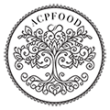
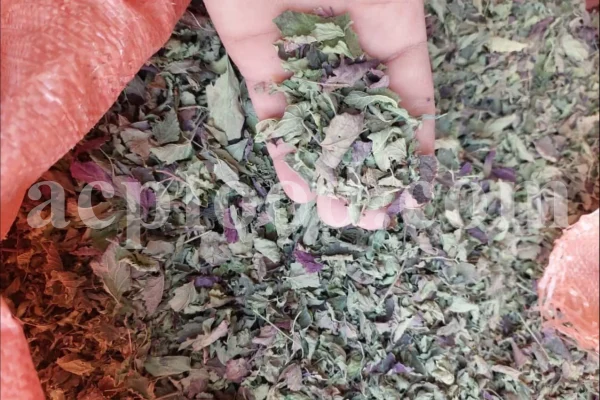
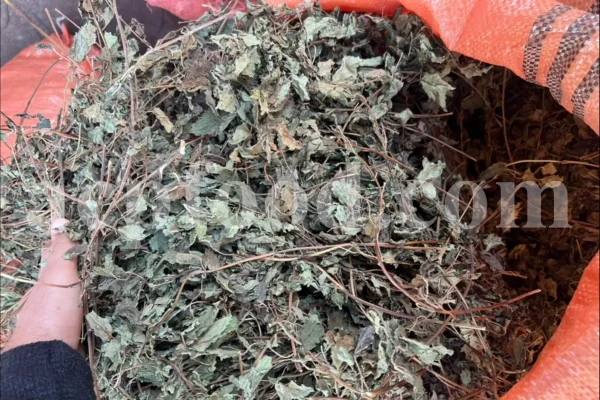
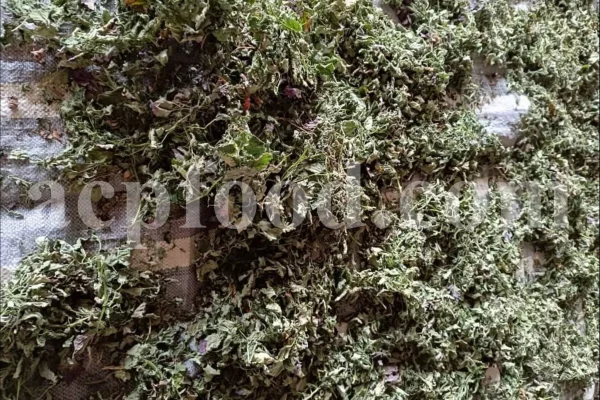
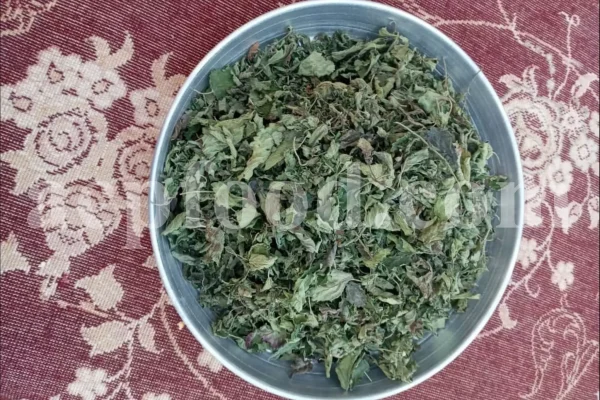
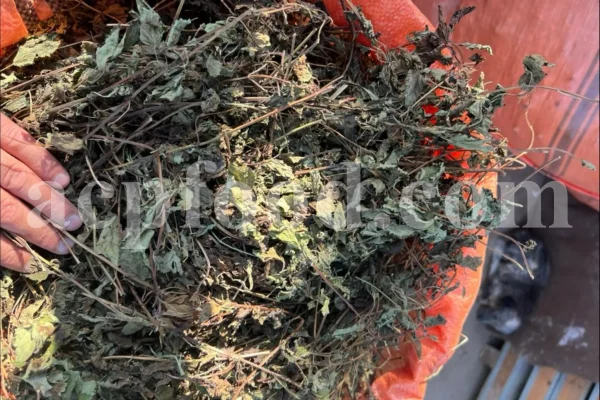
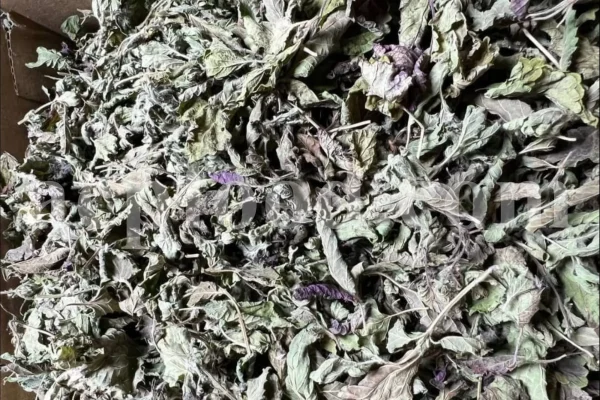
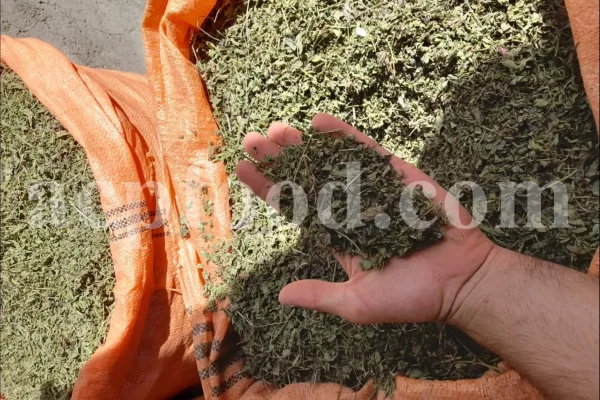

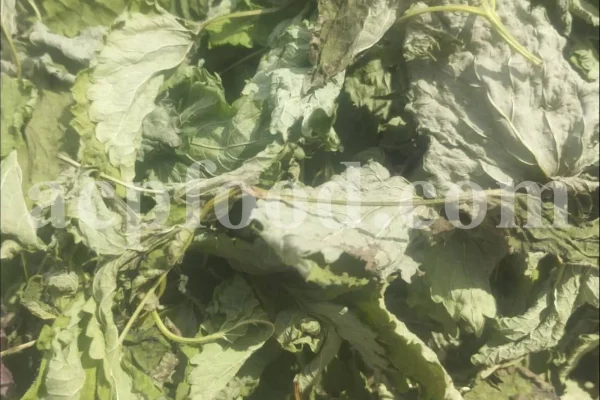
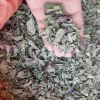
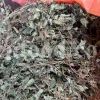

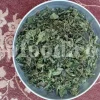
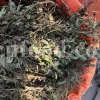
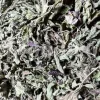
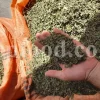


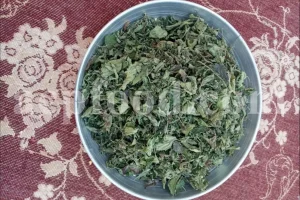
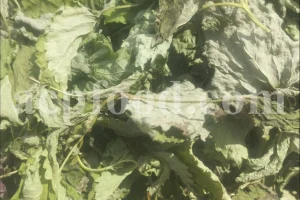
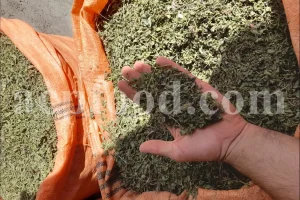
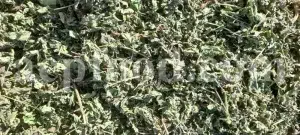
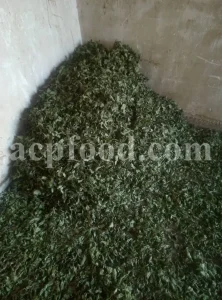
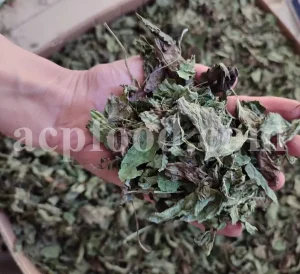
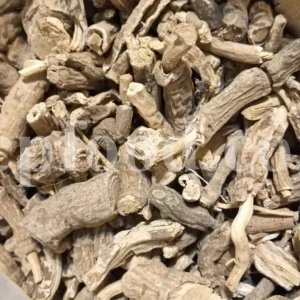
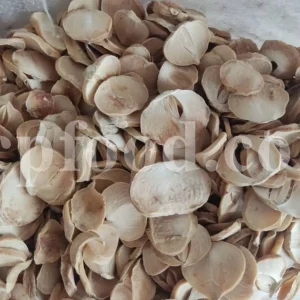
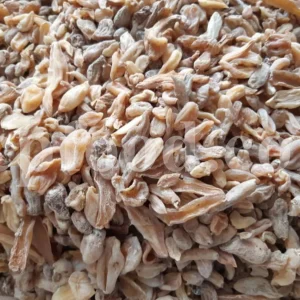
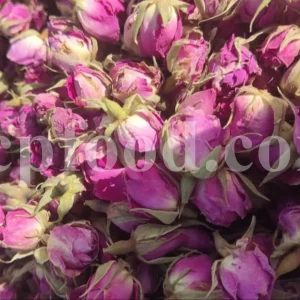
Reviews
There are no reviews yet.